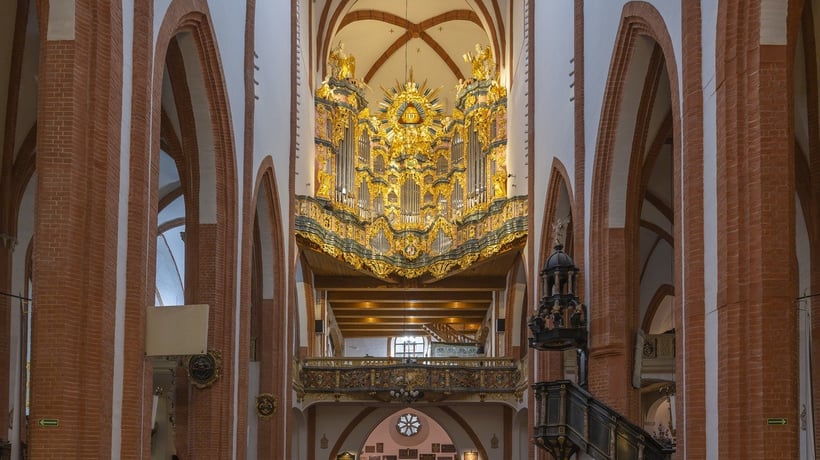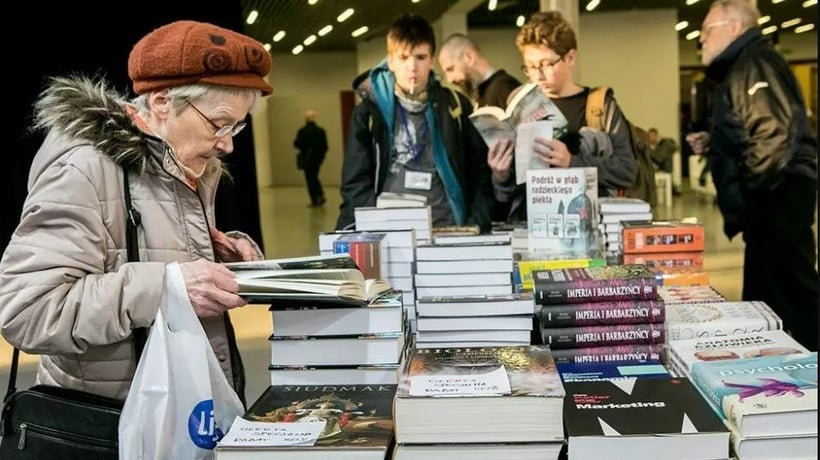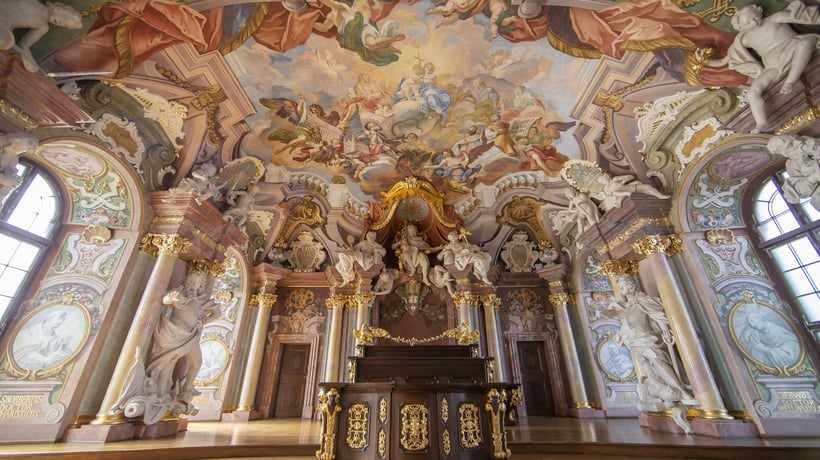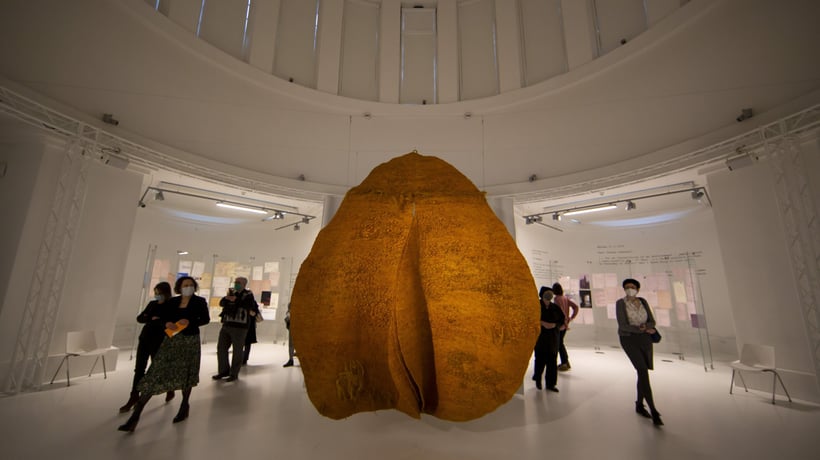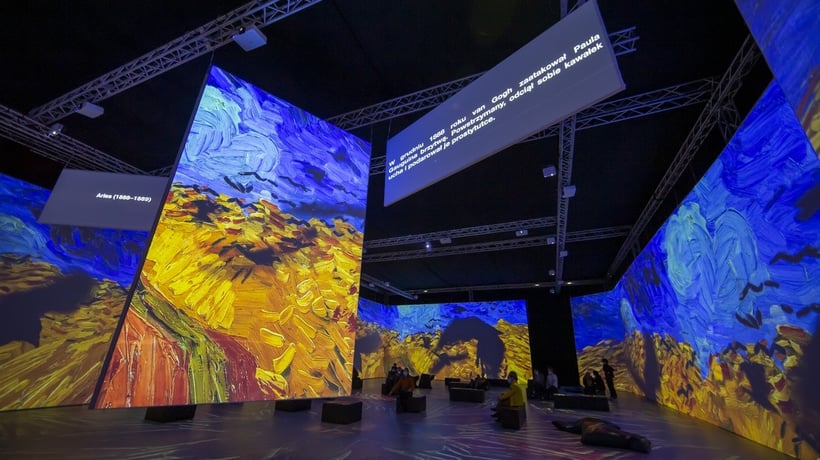Pope Francis I has recently commemorated the tragedy of the Armenian population in Turkey and officially called it genocide. He also called for the reconciliation of the Armenian and the Turkish nations after a holy mass celebrated in Vatican in commemoration of the centenary of the Armenian Genocide. The fact that Pope Francis I used the word "genocide" provoked a fierce response from the Turkish government, which issued a formal notice to the Vatican ambassador. "Concealing or denying evil is like allowing a wound to keep bleeding without bandaging," said the pope about the Armenian Genocide. Turkish authorities are trying to obliterate the memory of the atrocity, which took place at the beginning of the 20th century. The incumbent pope elaborated on the words of John Paul II, who said that the Armenian massacre was the first genocide of the 20th century.
Teatr ZAR from Wroclaw strives to preserve the memory of the event with the performance of "Armine, Sister" and a week devoted to the commemoration of the massacred Armenian population.
The Book of Whispers
Excerpts from "The Book of Whispers" by Varujan Vosganian, recently published by Książkowe Klimaty as part of the Worldwide Reading in Commemoration of the Armenian Genocide, will be interpreted by Jacek Zawadzki. The event will be held at 8 p.m. 21 April at Teatr Laboratorium. The reading will be followed by a discussion. The latter will be conducted by Kama Margielska, Editor-in-Chief at the publishing house Książkowe Klimaty.
"The Book of Whispers" brings together stories about the lives of Armenian people before, during and after the genocide of 1915-1916, about the atrocities of World War II about the Soviet occupation of Romania and the detrimental effect of the Communist regime on both native Romanian society and the Armenian community in Romania. The book combines historical, biographical and fictional themes with a compelling simplicity, precision and flow characteristic of the tales you tell children at bedtime.
Witness Daisuke Yoshimoto
The week organised in commemoration of the Armenian Genocide is going to feature a performance by Daisuke Yoshimoto, a butoh dancer and a friend of Teatr ZAR, who first presented his performance in November 2013 as a run-up to the "Armine, Sister" official première. He is going to present a story of Armenian people and the massacre they suffered at the hands of the Turks. The dancer will elaborate on the theme of preserving and disseminating memory. "Witness" is a separate piece, but it follows the same principles as the première by Teatr ZAR. Yoshimoto complements, as it were, the story presented by the ZAR. His moving performance is set against a row of sixteen columns representing a dilapidating Armenian church. Each of his moves speaks volumes about what happened in 1915 in Turkish Anatolia. The Turkish government planned the operation to capture and murder the Armenian population. It acted against its own citizens. It is estimated that ca. 1.5 million people may have died in the Armenian massacre. The white dancer transforms into a symbol of the entire nation. A cracked pomegranate which stains the white figure of the performer turns into the blood of innocent victims. Massive panes of glass which crash upon the artist fail to transform into a sealed sarcophagus as they open a gaze into the memory of the Armenian people and its history. Yashimoto acts as a witness to the Armenian Genocide. Even though he has not lived through the experience, he uses expressive techniques characteristic of the butoh theatre to enact the pain and despair of the victims. The performance will leave nobody cold in its quest to bring back the memory of the victims.
"Witness" will be held on 22-23, 25-27 April at 7.15 p.m. and on 24 April at 8.15 p.m. in the square by Saint Elizabeth's Church, (ul. św Mikołaja).
"Armine, Sister"
"Armine, Sister" will be staged again in Wroclaw on 25-27 April at 8 p.m. at the Studio Na Grobli.
The backbone of "Armine, Sister" is created by Armenian liturgy music, ranging from monodies sung at the Church of Saint Trinity in Istanbul through compositions by Makar Ekmalian and collections by Komitas to the musical traditions of Persia and Kurdistan. The actors at Teatr ZAR have been learning to sing the repertoire for nearly two years, and they will be accompanied by real masters of the genre, including Aram Kerovpyan, master singer at the Armenian Cathedral in Paris, Murat Iclinalca, master singer at Saint Gregory the Illumitor's Church in Paris, Dengbej Kazo , a Kurdish singer and story-teller, and sister Masha and Marjan Vahdat, who special in classical Persian vocal repertoire.
The scene is arranged with a row of 16 columns redolent of an abandoned Armenian church. "We found vital to highlight the relationship between architecture and music," says Fret. "As we travelled across Anatolia, we came across the ruins of Armenian Churches. The sites are listed as monuments, and yet contain no information on the Armenian population. The history of Armenian people is being erased and obliterated. The genocide committed in Turkey is being distorted and repressed to our cultural unconscious," adds Teatr ZAR's leader.
"Songs of Remembrance"
The première of the documentary "Songs of Remembrance" on the "Armine, Sister" project directed by Nathalie Rossetti and Turi Finocchiaro will be held on Tuesday 28 April at 8 pm in the Lower Silesian Film Centre.
On Thursday 23 April, the Church of Saint Trinity in Warsaw, located in Plac Małachowskiego 1, will in turn be a witness to a live performance by Armenian liturgy singers. The show is called "Columns" and will be presented by the members of Teatr ZAR, Aram, Virginia and Vahan Kerovpyan and Murat Iclinalca. The concert is going to bring together Armenian liturgy music, which is mainly monodies accompanied by the drone. The repertoire on the night will cover a variety of pieces from the Officum Divinum and the Divine Liturgy. The performance is a great opportunity for Teatr ZAR, Virginia, Vahan and Aram Kerovpyan, who are the founders of the Centre for the Studies on Armenian Liturgy Singing and the Akn ensemble in Paris, and Murat Iclinalca, master singer at Saint Gregoty the Illuminator's Church in Istanbul, to present the results of three years of the their project to immerse in ancient Armenian monodies and create "Armine, Sister". The concert is held under the auspices of the Embassy of the Republic of Armenia in Poland and His Excellency Ambassador Extraordiary and Plenipotentiary Edgar Ghazaryan.
"Great Crime: The Palimpsest of Memory" throughout Poland
In commemoration of the Armenian Genocide, on Friday 24 April, Teatr ZAR is going to present the project "Medz Yeghern: The Palimpsest of Memory", which encompasses a series of artistic events such as flash mobs, happenings or meetings. The events will be held simultaneously at a number of cultural and community centres in the largest Polish cities, and they are going to particularly intensify at 7.15 p.m.
The title of the event, "Medz Yeghern: The Palimpsest of Memory", makes a reference to the term which is best rendered in English as "Great Crime" and was first used by Armenian journalist and activist Khatchadour Maloumian in 1911. The term became an Armenian equivalent of the word "genocide". The choice of the words "Medz Yeghern" for the name of the project is a deliberate decision aimed at promoting the term and raising the awareness of the event and preserving the memory of its victims.
The "Medz Yeghern: The Palimpsest of Memory" action has been designed for a group of people who can easily get together through a social network The action reaches a climax when people simultaneously lay a small pebble, a handful of sand or a pomegranate on the ground. These objects are particularly meaningful as symbols representing Armenian history. A handful of sand alludes to the image of Armenian churches which are slowly dilapidating under the desert sand and whose intricately cut columns stand as a metaphor of the Armenian genocide. The pomegranate is a symbol of fertility and longevity.
With this simple and modest gesture of pouring sand from their hands, which is purposefully and simultaneously performed by a group of several dozen people, the participants will give a voice to the victims and take ownership of preserving the memory of the past events as well as raising the awareness of the scale of atrocities in 1915. The activities will also touch upon wider and more universal problems: the issue of preserving and transmitting the memory and the role and the meaning of performative actions for the discourse focused on history and remembrance.
Exhibitions in Wroclaw
The centenary will also be commemorated by two exhibitions. The first of the two will be on display from 13 to 30 April in the square by Saint Elizabeth's Church (ul św Mikołaja). "The Witness of Witnesses" combines historical records with contemporary photographs and materials collected by the members of Teatr ZAR during their travels in Armenia, Israel and Turkey. The exhibition strives to showcase a small history of the Armenian people, which has been repressed from the grand history of Europe, and to juxtapose rare photographs and records with the history of the "vacant gaze" of modern Europeans.
From 21 to 27 April, the Cinema Hall at the Grotowski Institute and the CaféTHEI will be home to an exhibition which brings together photographs representing the places where the tragedy of the Armenian people took place. These tracks will take you on a journey filled with sorrow, as they bring back the memory of events not to those who passed away but to those who are able to interpret them.
Admission to the majority of the events is free of charge.
The events mentioned above are also accompanied by a crowdfunding campaign to preserve memory. The campaign is aimed at promoting the project and theatre performance "Armine, Sister" by Teatr ZAR (www.indiegogo.com/projects/armine-sister).


![Wroclaw for Armenia: In commemoration of genocide [EVENTS]](https://www.wroclaw.pl/cdn-cgi/image/w=840,h=480,fit=crop,f=avif/en/files/news/16446/butoh_013.jpg)

